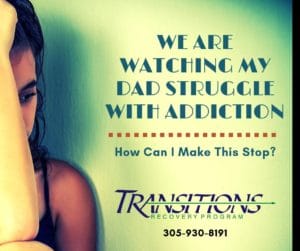 Substance abuse negatively impacts family members, setting them up for a difficult life.
Substance abuse negatively impacts family members, setting them up for a difficult life.
Many view fighting a substance abuse problem as a personal experience. Although the addiction will impact the user, a lot of people don’t consider how addiction affects family members. Between spouses, children, parents, and other loved ones, those witnessing a family member’s drug addiction are prone to emotional, financial, and medical damage, as well as a plethora of other consequences.
With this in mind, understanding how addiction impacts the family is the first step to discussing the problem. While other family members might attempt to help this individual, the impact the addict has on the entire family tends to bring everyone down with them. In this article, we’ll shed some light on the impact substance abuse tends to have on a family and how to re-establish damaged relationships.
If you or someone you love need treatment call 1-800-626-1980.
Your call is crucial and could save a life.
How A Parent With A Drug Addiction Impacts Young Children
Drug or alcohol abuse is all too common in homes across the U.S. With 1 in 5 children growing up in a house with at least one parent abusing substances, it’s safe to say that this is a problem that’s demanding a solution.
As children witness the trauma of a parent going through addiction, they’re being subjected to long-term effects. These children have a greater chance of developing substance disorders as they grow up.
The chance that they’ll be neglected is also higher for children living in homes with an addicted parent. As if that’s not enough, observing a parent abusing substances forms distressing emotions that can create delays in learning and development as well as promote mental and emotional disorders.
The fact of the matter is children are vulnerable to external influences at this stage in their lives as they are developing their personalities. With this in mind, children are at risk of going down the same path as addicted parents. The children are more likely to see aggressive or violent behavior as a result of a parent’s use. Their parents might argue in excess, resulting in emotional distress as well.
All in all, being exposed to a house in chaos due to drug abuse has the potential to make a child feel both physically and emotionally neglected, as well as unsafe. With this in mind, mental and emotional instability can result. Over time, the children could develop a sense of guilt and self-blame regarding the parent’s addiction. They can develop feelings of unworthiness and even dysfunctional attachments as they grow up as well.
Teenage Addiction Impacting The Family
Drinking and cannabis use are common among teenagers, with cannabis use being more prevalent than cigarettes and other drugs. With peer pressure rearing its ugly head at this point in these teens’ lives, the temptation to try drugs is there. These young adults are still impressionable, crafting their identity. And if they experienced parental drug use, the chance they’ll do the same in adulthood is high.
Teen addictions can occur as a result of external or internal factors. The external factor is usually school and peer pressure from friends. Internal factors generally include self-medication and genetics.
Teenagers using cocaine are being overstimulated, resulting in them becoming sleep-deprived. In turn, their scholastic performance suffers, and they tend to associate with other addicts. Other teens might abuse prescription opioids or synthetic opioids, both of which result in euphoric effects. Unfortunately, these substances are highly addictive and produce lasting damage.
An addiction can be overwhelming for a teen, resulting in strained relationships at home as well as pressures that might cause the teen to run away. As a result, this can cause parental distress. Troubled teens find it easy to turn to abuse, promoting their vulnerability in the process. This typically results in the emotional, economical, and sexual exploitation of these young adults.
College Addiction Effects On The Family
Teenage addicts turn into college substance abusers. Having early exposure to drugs can result in an individual building tolerance and forging a life-long addiction that goes on into their college experience. Many addicts will continue partying and abusing prohibited substances, finding it nearly impossible to stop. In turn, this can impact the family in a multitude of ways.
College addictions can be a major source of anxiety for a family. There’s simply no telling when they’re going to get a phone call that can change their lives forever. A college addict is challenging to control, especially if they’re away for school. The conflicts that can arise become even harder to resolve as there’s no way to directly monitor the college student’s behavior.
With the addiction impacting the student’s grades, ability to handle college commitments, and day-to-day abilities, it becomes far easier for the addict to slip up and cause problems. These issues can cost families thousands of dollars in damages or lawyer fees, making addiction treatment in Florida one of the better options available.
Re-establishing Damaged Relationships
An addict will harm those around them, even if they’re family members. While the damage is not on purpose, it still happens, and everyone needs time to heal. Making the conscious effort to get help is the first step, and through Transitions Recovery, it’s possible to make a full recovery. But it will take effort and family counseling to re-establish those damaged relationships.
Is an addicted family member adversely impacting your family? If so, it’s crucial to get this person addiction treatment and go through family counseling to begin the healing process.
Achieve the better quality of life your family deserves and make the call today 1-800-626-1980.

















